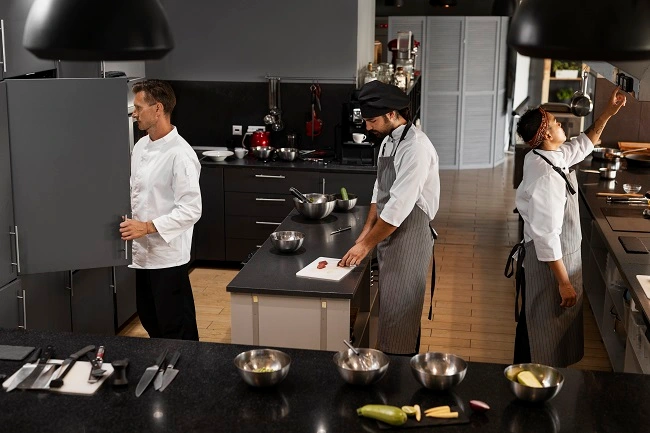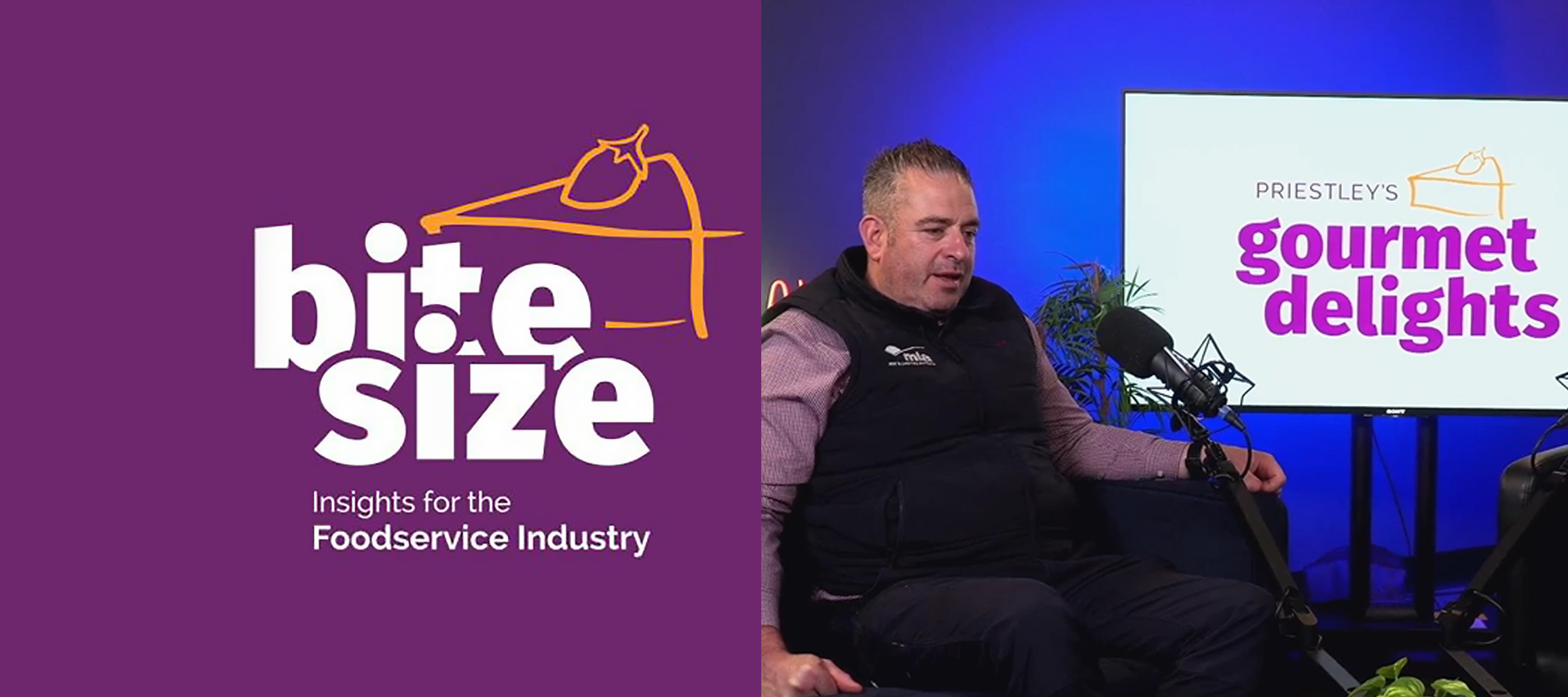At a glance
- Cost, Convenience, Quality: Navigating the Choice Between Wholesale and In-House Desserts.
- Pros and Cons Explored: Unlocking the Strategic Impact on Restaurants’ Identity and Customer Satisfaction.
- Priestley’s Gourmet Delights: Your Trusted Partner in Wholesale Excellence for Artisanal Desserts.
The culinary world is ever-evolving, and for restaurants, the decision between sourcing wholesale desserts or opting for in-house baking is crucial. This choice goes beyond mere preference; it’s a strategic decision that influences a restaurant’s identity, operational efficiency, and customer satisfaction.
Wholesale Desserts and Cakes

Pros
Cost-effective Prices
Wholesale desserts and cakes offer significant cost savings. By purchasing at wholesale prices, restaurants can enjoy lower costs compared to retail pricing. Which is particularly beneficial during peak sales periods.
Convenience and Variety
Wholesale dessert suppliers provide a diverse range of products, catering to various customer preferences, including special dietary needs like gluten-free, vegan and dairy-free options. This variety enables restaurants to expand their menu offerings without the complexity of creating new recipes.
High-Quality Products
Choosing a reputable supplier allows restaurants to access professionally crafted desserts. These desserts are made with quality control as a top priority. This commitment ensures not only consistency but also contributes to building customer loyalty. Customers are satisfied with the consistently high product quality.
Time and Energy Saving
Opting for wholesale desserts for restaurants frees up valuable time and resources. This allows restaurants to focus on other aspects of their business, like introducing unique menu items or enhancing customer service.
Reliable Delivery Services
Wholesale dessert suppliers often provide dependable delivery services, ensuring that orders are received promptly and consistently. This is crucial for maintaining a smooth operation.
Cons
Quality Concerns
Concerns about matching the restaurant’s quality standards with wholesale desserts are valid. However, partnering with reputable suppliers like Priestley’s addresses these concerns effectively:
No Spoilage or Write-off
Priestley’s products go straight from the freezer to the cake cabinet, reducing unnecessary costs associated with spoilage. This approach allows business owners to showcase only what’s needed for the day.
Freshness Guaranteed
Freezing techniques employed by Priestley’s lock in freshness, preserving the baked goodness from the moment it’s baked. This ensures that restaurants can serve consistently great-tasting, high-quality products, maintaining customer satisfaction.
In-House Baking
Pros
Control over Quality
In-house baking offers complete control over the quality and freshness of desserts. That aligns closely with the restaurant’s brand and culinary vision.
Customisation and Exclusivity
In-house baking allows for the creation of unique desserts, offering an exclusive dining experience that can set a restaurant apart.
Cons
Higher Cost and Time-Consuming
In-house baking requires significant investment in terms of equipment, ingredients, and skilled staff. It is also more time-consuming than sourcing desserts wholesale.
Limited Variety
Restaurants may face limitations in the variety of desserts they can offer due to resource constraints.
Factors to Consider When Choosing Between Wholesale and In-House Baking
When deciding between wholesale desserts and in-house baking, restaurants must weigh several critical factors. This will ensure that their choice aligns with their operational capabilities and culinary aspirations.
Budget Considerations
Restaurants must analyse their financial capacity when choosing between wholesale desserts and in-house baking. Wholesale often saves costs, especially in bulk, but entails storage and waste management. In-house baking, however, demands initial investment in equipment, ingredients, and skilled labour.
Menu Offerings and Customer Expectations
The decision also depends on the menu’s diversity and customer expectations. Wholesale suppliers like Priestley’s offer a variety of options that are suitable for a dynamic dessert menu. In contrast, in-house baking, ideal for bespoke, artisanal desserts, allows customisation and exclusivity.
Quality Standards and Brand Alignment
Maintaining quality standards is crucial. Restaurants must decide whether wholesale products meet their quality criteria, or if in-house baking better suits their brand identity.
Resource Availability

In-house baking requires adequate space, equipment, and trained staff, which can be challenging for smaller establishments. Wholesale options reduce these resource demands.
Consistency and Control
In-house baking offers control over the production process, crucial for consistency in taste and presentation. Wholesale desserts, while convenient, may vary in consistency unless you are buying from Priestley’s.
Market Trends and Customer Preferences
Restaurants should consider market trends and customer preferences. Unique, artisanal desserts favour in-house baking, while a preference for variety leans towards wholesale.
Choosing a Reputable Supplier
The right supplier should align with the restaurant’s quality standards, culinary style, and overall vision. Key considerations include:
Menu Compatibility: The supplier’s range should complement your menu.
Quality and Consistency: Essential for maintaining reputation.
Reliability and Delivery: On-time deliveries are crucial, especially during peak times.
Customer Service: A good supplier offers strong support and assistance.
Sustainability and Ethics: Aligning with suppliers committed to sustainability enhances brand reputation.
Flexibility and Customisation: The ability to create unique desserts is a significant advantage.
Reputation and Reviews: Research the supplier’s industry standing and customer feedback.
Pricing and Contract Terms: Ensure pricing aligns with your budget and terms are clear.
Sampling and Testing: Test the products to ensure they meet your standards.
Building a Relationship: Consider a supplier’s potential as a long-term partner.
Discover Priestley’s Wide Range of Wholesale Offerings
Priestley’s Gourmet Delights has been serving the Australian food service industry since 1996, offering a wide array of desserts to various food venues. Their range of wholesale desserts for restaurants includes:
Cheesecakes: A variety of flavours with rich, creamy textures.
Convenience Items: Ready-to-go products for busy venues.
Dessert Sauces: Flavour enhancers for any dessert.
Gâteaux & Logs: Perfect for celebrations or as centrepiece desserts.
Grab & Go: Convenient items for quick service venues.
Individual Cakes & Desserts, Tarts: Catering to personal preferences and palates.
Kids Delights: Fun and delicious options for younger guests.
Large Tarts & Pies: Suitable for family or group servings.
Unmatched Quality and Convenience
Priestley’s products offer no spoilage or write-off and guarantee freshness with their freezing technique. Their easy-to-handle, portion-controlled items serve as a great base for creativity and align with sustainability goals.
Nationwide Reach and Expertise
With a network across Australia, Priestley’s is known for its quality, ease of ordering, and extensive experience in the industry. Their commitment to using high-quality ingredients and recognition as an award-winning cake supplier makes them a top choice for Australian food venues.
The decision between wholesale desserts and in-house baking for restaurants hinges on various factors such as cost, convenience, quality, variety, and the restaurant’s brand identity. By carefully weighing these aspects, restaurant owners can make a strategic decision that best suits their establishment’s needs and customer expectations.






